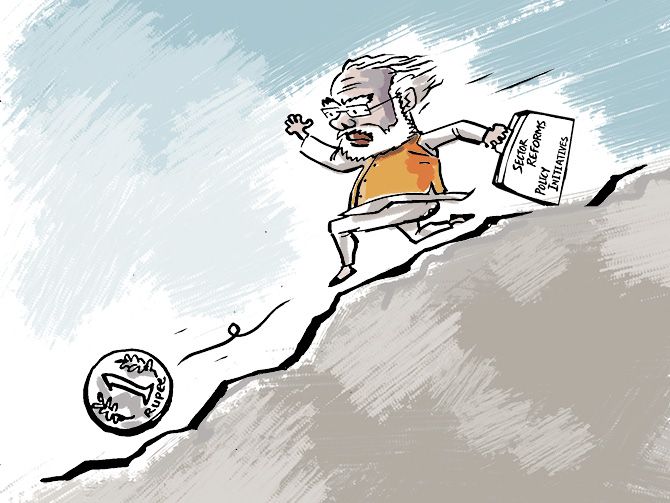The Business Confidence Index (BCI) prepared by the Delhi-based think tank NCAER declined by 27.5 per cent in the first quarter of the current financial year over the previous quarter mainly on account of the second wave of the COVID-19 pandemic.

The BCI on a quarter-on-quarter basis decreased by 35.3 per cent for the services sector, 32.9 per cent for the consumer durables sector, 32.3 per cent for the capital goods sector, 17 per cent for the intermediate goods sector and 14.3 per cent for the consumer non-durables sector, NCAER said in a release.
"High-frequency indicators suggest that though economic activity moderated in 2021–22:Q1 as compared to 2020–21:Q4, yet it outperformed in 2020–21:Q1.
"It is not surprising that business sentiments worsened in the first quarter of the current fiscal. This worsening was fairly broad-based."
After staying virtually unchanged between the third and fourth quarters of 2020–21, the NCAER BCI fell to its historically second-lowest point in 2021–22:Q1.The lowest level had been witnessed in 2020–21:Q1.
"The BCI decreased by (–) 27.5 per cent on a quarter-on-quarter (q-o-q) basis, from 85.2 in 2020–21:Q4 (Round 116; April 2021) to 61.8 in 2021–22:Q1 (Round 117; July 2021).
"However, on a year-on-year (y-o-y) basis, the BCI increased by 33.2 per cent in 2021–22:Q1," the think tank said.
NCAER has been conducting the BES every quarter since 1991. The BES findings are from 500 firms.
It further said that business sentiments improved in the west and deteriorated in the remaining three regions.
On a quarterly basis, the BCI increased in the west by 6.6 per cent during the quarter, whereas it declined in the other three regions -- by 61.6 per cent in the east, 50.6 per cent in the south, and 10.8 per cent in the north.
The BCI is driven by four components: 'overall economic conditions will improve in the next six months', ' financial position of firms will improve in the next six months', 'present investment climate is positive as compared to six months ago', and 'present capacity utilisation is close to or above the optimal level'.
NCAER further said the Political Confidence Index (PCI) decreased by 33.5 per cent in 2021–22:Q1 on a q-o-q basis, and by 18.6 per cent on a y-o-y basis.
Sentiments worsened for seven of the eight components on a q-o-q basis -- 'managing overall economic growth', 'managing government finances', 'managing inflation', 'managing unemployment', 'managing the exchange rate', 'managing a conducive political climate', and 'external trade negotiations'.
The share of positive responses in the case of the component, 'managing unemployment' was barely 4.2 per cent. Sentiments were unchanged for the component, 'pushing the economic reforms forward'.










